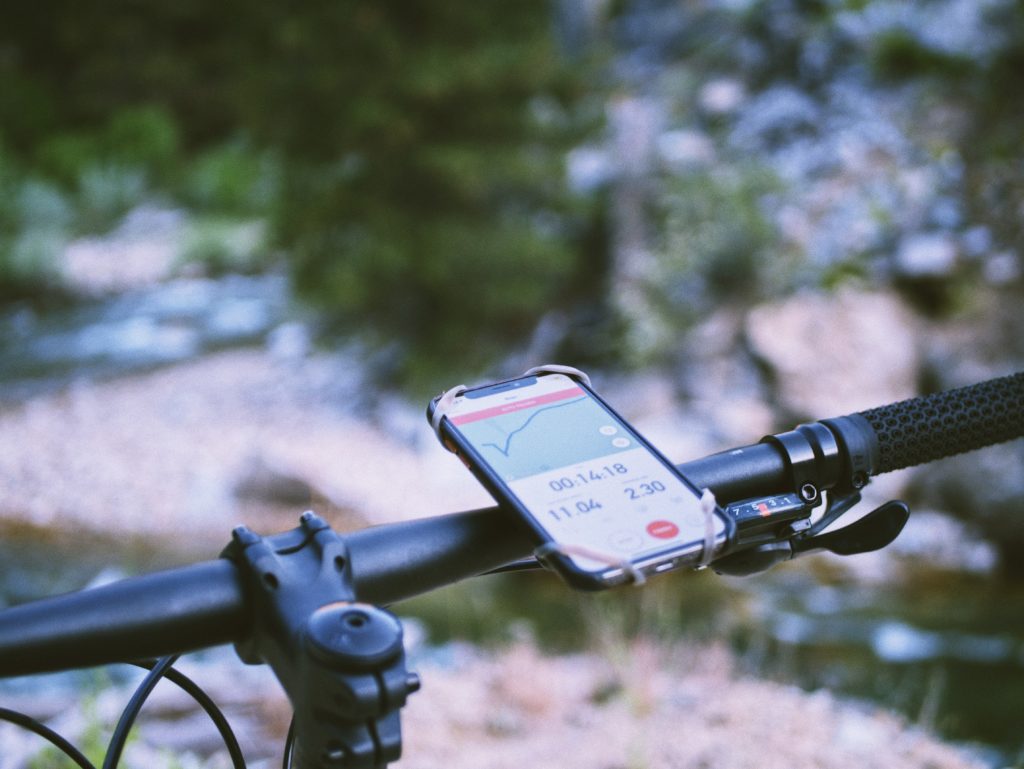Social Media Platforms and Endurance Sports

Athletes are tapping into social media and training apps for numerous reasons. Common social media platforms include Facebook, Instagram, and Twitter. Regarding training apps and technology, examples include Garmin Connect, Strava, and Zwift. For some athletes, these platforms assist in becoming more in tune with training. Others might use these platforms to connect to athletes with similar interests. Whatever the reason is for using these platforms, athletes need to understand how they can be beneficial for their performance, as well as potential drawbacks. These platforms impact not only the physical performance of an athlete but also the mental well-being. Athletes need to be proactive in their approach to including these platforms into their training and decide for themselves which will be most effective and how to maintain a healthy relationship.
Benefits of Social Media Platforms
There are numerous benefits for utilizing social media platforms and training applications as an athlete. Some of these benefits include:
- Feeling connected to others
- Accountability for sticking to a training program
- Being able to receive training data immediately
- Ability to post and share workouts with followers
- Receiving up-to-date information from racing organizations
- Learning from businesses and organizations regarding performance topics
- Supporting and connecting with other athletes
Drawbacks of Social Media Platforms
Although there are numerous benefits to utilizing these platforms, it is essential to recognize potential drawbacks. These can vary from athlete to athlete. Some drawbacks include:
- Putting too much weight on comparisons with other athletes. This includes how often another athlete is training; the physique of other athletes; nutrition and supplements others are using; happiness others portray on posts, etc.
- Fear of Missing Out. Athletes make training decisions based on what others post instead of what is best for personal performance and training.
- Some of the challenges promoted or offered through athlete training platforms can be fun but unhealthy for performance goals. Some examples include run streaks, cycling challenges, mileage goals, etc.
- Negative impact on sleep quality when used before going to bed or during later night hours since it can lead to mindless scrolling, nervousness, etc.
How to Build a Healthy Relationship
There are advantages and disadvantages to incorporating social media. The most important aspect is that if an athlete utilizes these platforms, they develop a healthy relationship and maintain control.
Five Suggested Strategies To Implement
- Schedule the amount of time per day spent on social media. It is incredible how much time can be lost scrolling through social media. Some athletes might skip self-care activities, such as reading, meditation, or journaling, since downtime might have been spent on these platforms. Be in control of your time. Allow yourself a certain amount each day to browse and post. There is even an option to set specific screen time limits for social media apps on some devices!
- Check in on yourself first. Social media can impact some athletes’ well-being and mental outlook, leading to increased worry, anxieties, self-image concerns, etc. Before opening the app, make a conscious effort to be mindful in this process. Consider answering these questions: How are you feeling mentally and emotionally? Do you have a positive outlook, or feeling a little down?
- Establish personal ground rules for use. Policies and procedures are essential components in most aspects of life, so it is necessary to establish them regarding social media use, too! These ground rules help establish the chosen content, profiles to follow, what is posted or shared, training data, training challenges, etc. Each athlete has a choice regarding structure, but having some guidelines established might be the element required to keep the relationship healthy!
- Recognize it is okay to unfollow accounts when feeling defeated or lost in comparison. When coming across an account resulting in feelings of being unsettled or unhappy, it is OKAY to unfollow. This is true, too, if an athlete has been comparing personal success to the success of others. Each athlete has the right to decide what media to digest and what media to filter out.
- Understand the purpose of social media use. Similar to knowing the reason and purpose for training, athletes must understand their intention to use these platforms. Is it for personal gain? Connecting with similar individuals? Spread knowledge or experience? Business? Whatever the purpose, athletes must make sure to stick to it as they post, share and browse!
As athletes utilize social media platforms and/or training apps and technology, it is suggested to implement these strategies to develop a healthy relationship while also remaining mindful of these platforms’ impact on performance.

JoAnne Bullard is a Doctor of Sport and Performance Psychology and a Certified Mental Performance Consultant through the Association for Applied Sport Psychology. She is also a Certified Strength and Conditioning Specialist through the National Strength and Conditioning Association.
She serves as a tenured Associate Professor at Rowan University and is the owner of Absolute Fitness, LLC. Her goal is to provide a holistically applied approach for clients through performance psychology consulting. She has experience working with athletes of all ages, including endurance athletes, in individual and group sessions. Her research areas include mindfulness, performance anxiety, goal setting, coping strategies, and mental well-being of athletes.
She has completed five marathons, numerous half-marathons, and is always looking for her next race.

